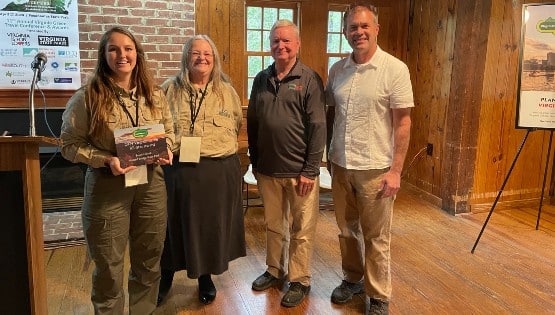The Top Story by Chris Graham
More than 7,000 Virginia children were found to have been abused or neglected last year.
Another 14,000 incidents of abuse and neglect never made it to the authorities for assessment or investigation.
Not that you would know any of this from reading the papers or watching the evening news.
“It’s just not publicized,” said Janet Cleveland, the executive director of Central Valley Court Appointed Special Advocates, a Fishersville-based agency that serves children involved in cases in the local court system for alleged abuse and neglect by linking them up with trained volunteers who advocate for their legal interests.
“What we see in the newspaper or on the TV news, when we see it, which is rare, are the drastic abuse cases, where there is severe physical abuse or sexual abuse. But the majority are physical-neglect cases. And those have such long-term impacts, negative impacts, on children. That’s what we see,” Cleveland told The Augusta Free Press.
Child abuse and neglect is “overlooked or rather ignored in today’s society,” said Jamie Newman, the manager of professional training and certification at the Virginia chapter of Childhelp USA.
“People in our society do not like to think or talk about certain issues, and child abuse is one of them,” Newman told the AFP.
“I’m not sure that it’s a factor of people not wanting to think about it or talk about it. I just think that a lot of people are unaware, particularly here in our community,” said Ruth Stone, the executive director of Piedmont CASA, which serves children in the Charlottesville-Albemarle County area.
“Central Virginia has a reputation of being a wonderful place to live. But as I like to say, it can be a great place for people to live, but not everybody lives in a great place,” Stone told the AFP.
Rocking the boat
Ignorance of child abuse and child neglect is one hindrance to efforts to combat the problems. The fear of getting in the middle of a suspected case of abuse or neglect by reporting what is known to authorities is another.
“People are often afraid to get involved. They’re afraid that somebody will get mad if they find out who reported them. That’s a big issue with many people. They’re afraid to rock the boat,” Stone said.
Nine of 10 Americans think that child abuse and neglect are serious problems. Only 13 percent of them report abuse or neglect when they are confronted with it.
Newman said she thinks the reason that this is the case is that “child abuse and neglect, by definition, occurs within the family, and therefore challenges all of our preconceived ideas about the family as an inherently safe and happy space.”
“Therefore, to fully and successfully address child abuse, we as a society must reexamine one of our most sacred institutions. Many people do not want to do that, especially when we all grow up hearing that the family is the cornerstone of American society – to admit that the one institution that is supposed to be holding us together may be the site of abuses towards children, and women in most of the case of domestic violence, is too much for many Americans to fully address,” Newman said.
“We must break down the idea that the family is a private space that people should not interfere with. If people knew some of the dangers that occurred within the family, they might be more prone to intervene and report suspected abuse,” Newman said.
Stone said her advice to people confronted with the question of whether or not to report suspicions of child abuse or child neglect to authorities is “if you suspect that there might be abuse or neglect, then make the call.”
“The people at social services are professionals. They can go in and ask the right questions and make the right determination from there. Let the professionals, the trained professionals, make the decision,” Stone said.
“I would rather err on the side of caution,” Stone said. “Referrals can be made anonymously, and it’s not like social services is in the business of going around and broadcasting who has made a report or who has been investigated. It’s not about making people look bad. It’s about doing the right thing for children and families.”
Lifting the stigma
Reporting abuse or neglect is a reaction to something that has already happened. The focus of Prevent Child Abuse Virginia is on prevention – through a series of programs that are aimed at providing information and support to parents.
“Nobody likes to admit this, but it is difficult being a parent,” said Johanna Schuchert, the executive director of the Richmond-based nonprofit.
“You don’t get instructions when you become a parent. You don’t get training. You’re just expected to know how to do it. And there’s a stigma to asking for help. If we’re going to be successful as a society in preventing child abuse and child neglect, we’re going to have to overcome that stigma and realize that it’s OK to admit that parents sometimes need to have more tools at their disposal,” Schuchert told the AFP.
Families “are under more stress today than in the past for a variety of reasons,” said Schuchert, noting the breakdown of family and neighborhood support systems for many that has come with increased mobility.
Another factor is the increase in the number of families in which both parents work outside the home; a third is the sharp increase in single-parent households.
Prevent Child Abuse Virginia offers assistance to parents by making available information about child rearing – “and at the very beginning,” Schuchert said.
To that end, the organization has partnered with the state to make available child tool kits to new parents. Last year, 110,000 of the kits were distributed statewide – reaching 70 percent of all new parents.
The goal this year is to distribute 120,000 of the kits in Virginia.
“We need to recognize as a society that parenting is the most difficult job that we will ever have. And yet it is the one for which we receive the least training. Think about how much education you received for the job that you’re working at now. And how many years of schooling you underwent to get to where you are,” Schuchert said.
“Parents need to feel comfortable in accessing these services and programs without feeling like doing so is admitting that they are not doing a good job,” Schuchert said.
“It doesn’t matter how much education you have. It doesn’t matter what role you play in your job or in your community. Parenting requires a totally different skill set than anything else you will do,” Schuchert said.
The bottom line
“It’s curable. Neglect is something that we can do something about,” Cleveland said.
“We’ve got services in our community that are available for families. And sometimes it’s just letting these parents know about them and that they’re there and getting them to utilize them,” Cleveland said.
“I think that if people knew that there were agencies and people working on these issues that it would be easier for them intervene and report abuse,” Newman said.
“A lot of people may suspect child abuse, but leave it at that because they don’t know where to turn. They don’t want to call the police, and they may not know or want to call Child Protective Services, and they are not sure what agencies are out there to help them sort through here questions and concerns,” Newman said.
(Originally published 01-09-06)










